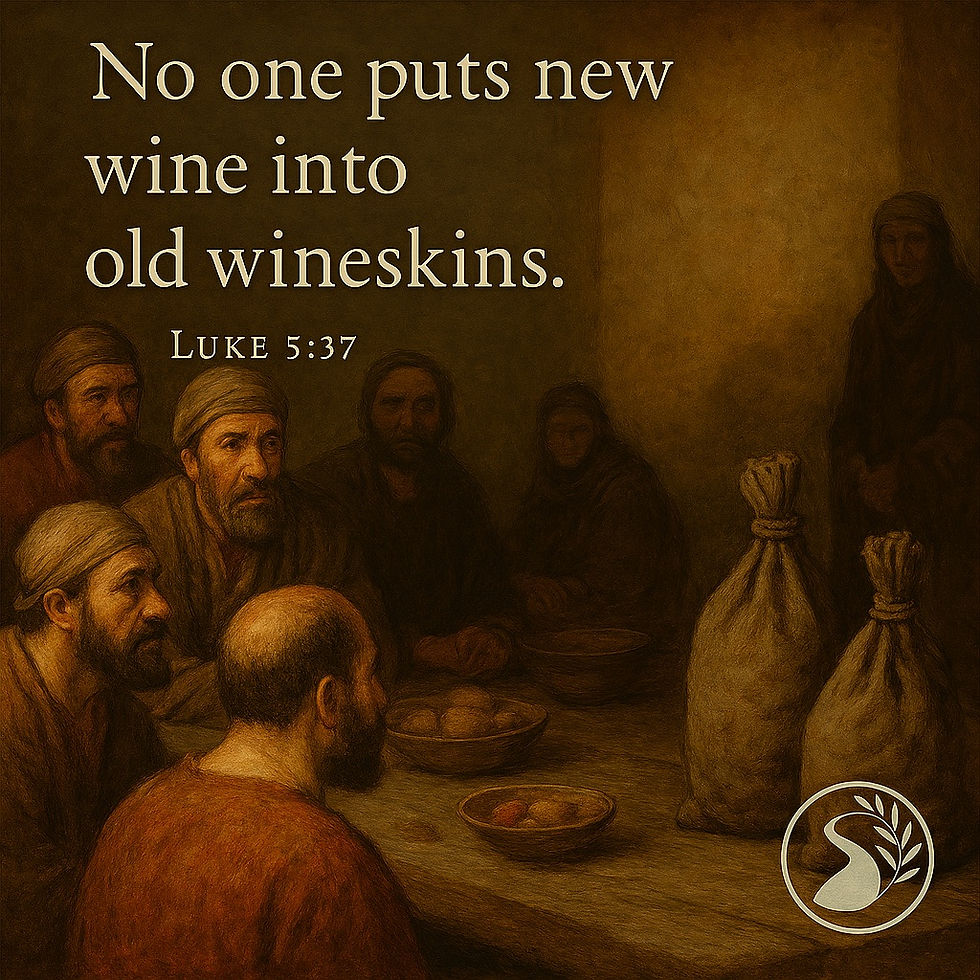The Parable of the Prodigal Son
- Leisa Baysinger

- Oct 26, 2025
- 4 min read
Updated: Dec 21, 2025

The parable of the prodigal son can be interpreted as a prophetic allegory of Israel’s divided house—where the older son represents Judah (the southern kingdom) and the younger son symbolizes Ephraim or Joseph (the northern kingdom), also known as the “lost tribes.” This understanding draws from Hebraic patterns, prophetic literature, and Messianic teachings.
Yeshua’s parable of the prodigal son, found in Luke 15: 11-32 has long been cherished as a story of repentance and divine mercy. Yet within Hebraic and Messianic circles, it’s also understood as a prophetic drama of Israel’s restoration. The two sons mirror the ancient schism between Judah and Ephraim:
• Judah (Older Son): Remained in proximity to the Father, representing the Jews of the southern kingdom who preserved Torah and temple worship.
• Ephraim (Younger Son): Departed and squandered his inheritance, echoing the northern kingdom’s descent into idolatry and eventual exile among the nations.
This interpretation aligns with prophetic themes in Hosea, Jeremiah, and Ezekiel, where Ephraim is portrayed as estranged yet destined for reconciliation.
Scriptures:
Hosea: Ephraim’s Estrangement and Mercy
• Hosea 5:3–4 — “I know Ephraim, and Israel is not hidden from Me… Their deeds do not permit them to return to their God.”
• Hosea 6:1–2 — “Come, let us return to the Lord… He will heal us… He will raise us up.”
• Hosea 11:8–11 — “How can I give you up, Ephraim?… My heart is changed within Me… I will not execute the fierceness of My anger… They shall come trembling like birds from Egypt… I will settle them in their houses.”
These verses, and many others, show God’s deep grief over the Northern Kingdom’s (Ephraim) rebellion and His ultimate promise of restoration.
Jeremiah: Ephraim’s Lament and Restoration
• Jeremiah 31:9 — “They shall come with weeping… I will lead them… For I am a Father to Israel, and Ephraim is My firstborn.”
• Jeremiah 31:18–20 — “I have surely heard Ephraim bemoaning himself… Turn thou me, and I shall be turned… Is Ephraim My dear son?… I will surely have mercy on him.”
Jeremiah 31 is a cornerstone of prophetic hope, portraying Ephraim as a repentant son and affirming God’s fatherly compassion.
Ezekiel: The Two Sticks and National Reconciliation
• Ezekiel 37:15–23 — “Take one stick and write on it, ‘For Judah’… then take another stick… ‘For Joseph, the stick of Ephraim’… Join them into one stick… I will make them one nation… They shall no longer be two nations.”
This vision of the two sticks becoming one in God’s hand is a vivid prophecy of the reunification of Judah and Ephraim under Messiah’s hand.
The younger son’s journey into a “far country” evokes Ephraim’s dispersion among the Gentiles. His degradation—feeding swine and longing for their food—symbolizes spiritual defilement and identity loss. Yet his turning point (“I will arise and go to my father”) reflects the awakening prophesied in Hosea 2:7 (2:9 in CJB) and Jeremiah 31:18–20, where Ephraim repents and is received with compassion.
The Father’s response—running to embrace the son, clothing him with a robe, ring, and sandals—mirrors the restoration promised to the lost tribes. It’s a picture of divine mercy extended not only to individuals, but to a people long estranged.
The older son’s indignation at the celebration reflects Judah’s historical tension with the Gentile inclusion and the return of Ephraim. In Romans 11, Paul addresses this dynamic, warning Judah not to boast over the “wild branches” grafted in. The parable subtly critiques self-righteousness and invites Judah to rejoice in the Father’s mercy.
This echoes Ezekiel 37’s vision of two sticks—Judah and Ephraim—being joined into one in the hand of the Lord. The Father’s words, “You are always with me, and all that I have is yours,” affirm Judah’s enduring covenant, while inviting him to embrace the joy of restoration.
Paul’s letter to the Ephesians speaks directly to this mystery: “You who were once far off have been brought near by the blood of Messiah” (Eph. 2:13). Many scholars and Messianic teachers see this as a fulfillment of the prodigal son’s return—Ephraim, scattered among the nations, now reconciled through Yeshua. See also this reference from I Peter 2:10 with references that can be examined (TS2009)-
“who once were not a people, but now the people of Elohim; who had not obtained compassion, but now obtained compassion”. Hos 1:9-10, Hos 2:23. Footnote: Also see Isa 65:1, Hos 1:9, Isa 63:16, Isa 64:8, Rom 9:25-26.
One people group today, exiled amongst the nations, fits the pattern spoken about by the Apostles Paul and Peter - Christians. Their Israelite Identities long lost but, like Joseph, are being revealed. Whether they are true bloodlines to Jacob or grafted in like Ruth, there is an awakening taking place around the world. Not all will see their true identity this side of heaven but those truly going after God will.
The parable thus becomes a living prophecy: a Father yearning for both sons to dwell together in unity, mercy, and joy. Jew and Gentile as one new man in the Jewish Messiah, Ephesians 2:14-16.
Yeshua the Messiah!
Leisa

_PNG.png)





Comments